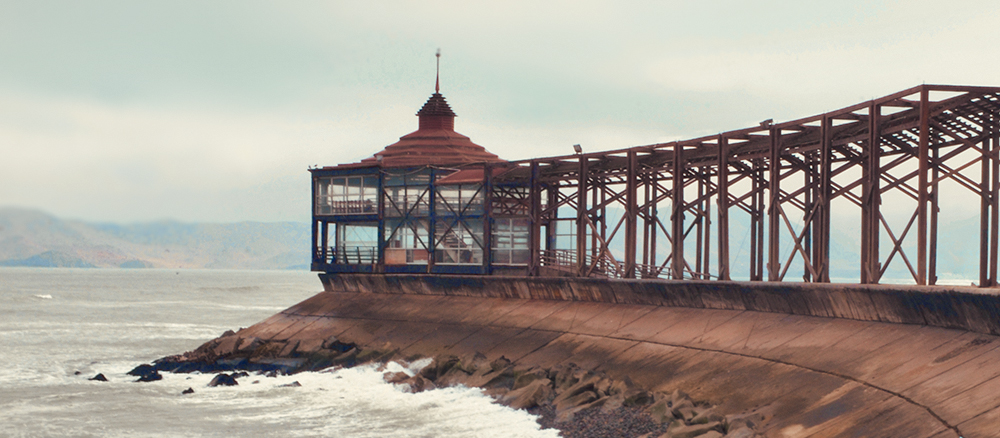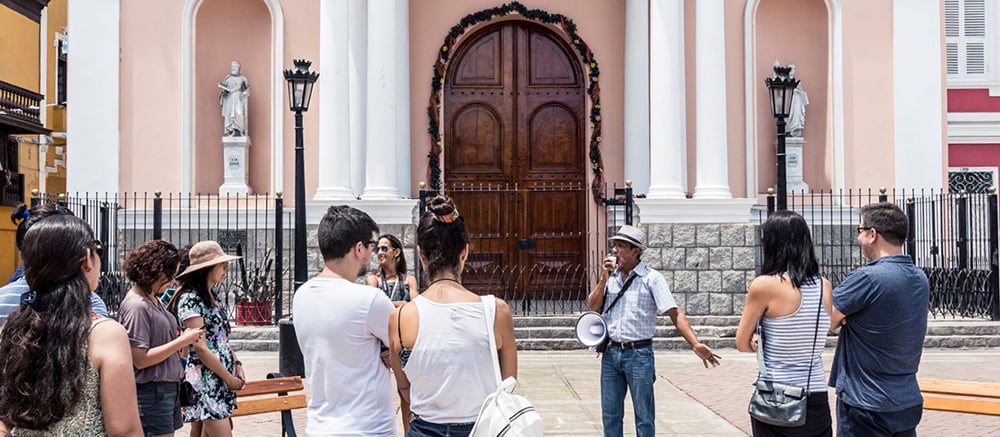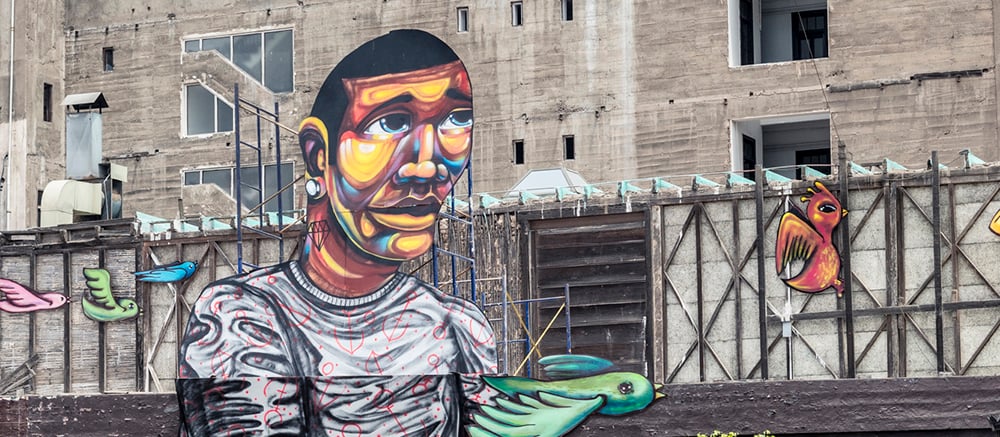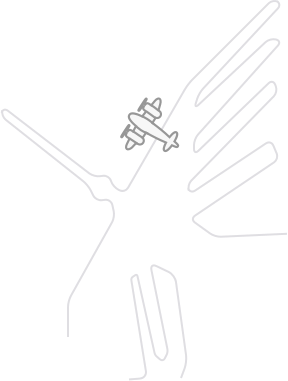There are several Callao in the world, Spain has its own, and Latin America itself has five, but the one in the Peruvian coast has a fishermen's tradition that has infused it with an identity of its own. Only 9 miles away from the Center of Lima, but of unique urban traits. Where locals, also known as chalacos, display a certain flair in their stride, almost as if their first steps had been taken to salsa, the musical genre that is nearly a faith among locals.

Source: Luz Beltrán Llontop
In the far end of Callao, is La Punta ("the tip" in English), a seaside district located at the tip of the Callao shore - hence the name. Once home to the piti-piti, a culture of native fishermen, and in time, a seaside-turned destination. Its emblematic beach - Cantolao - covered in stones and walked by tiny crabs - is where every chalaco first learns to swim, it is also the reason that made this a popular destination, as so to become a district. Its peculiar architecture is made of an array of styles that seem to have been chosen haphazardly from different time periods. Enjoying a visit to La Punta can be summed up as basking in its salty breeze, witnessing the reddish cloak of its summer sunsets, and taking a bite at its traditional pan with pejerrey.

Source: Callao Monumental
On the way towards the Historical Center of Callao, the statue of the local hero, Miguel Grau, waves at us from a bench by the road, facing the colorful houses of Chucuito, a neighborhood that - during Pre-Hispanic times, was also home to the piti-piti. And in time, became inhabited by migrant fishermen from Italy and Spain who gave the neighborhood its current appearance, by building their houses with the wood of their ships.
.jpg?width=1000&name=016212_300%20(1).jpg)
Source: Callao Monumental
Among colorful buildings, of aged balconies and streetlamps of once upon a time, the emblematic constructions of the Historical Center of Callao begin to rise before the visitors. Some of which are the Real Felipe, a fortress that was originally built to protect the port from pirates; the Plaza Matriz (or "Main Square") of ample reception and with a view to the dock, where the white and light pink colors of its charming church pay tribute to the emblematic colors of Callao; and marine restaurants of a long culinary tradition that has turned them into local landmarks as well.

Source: Callao Monumental
In the heart of this ancient Callao was born Callao Monumental, an urban art proposal that attracts national and foreign visitors. Restored buildings, and others, decorated with the work of urban artists, that welcome guests into the galleries, and to an array of restaurants. Casa Ronald is at the center of this artistic endeavor, when it was built - in the 1920s- it stood out for being the tallest building in Callao, today, its six floors host contemporary art exhibitions, and its rooftop is destined for cultural events. It's an ideal venue for a leisure stroll among urban art.
Every person who arrives in Peru, lands in Callao, because it is where the country's main airport is located. However, few know about the memorable experiences that can be found at only 15 KM away from the Center of Lima. These are only some of Callao's main attractions, there are still many more secrets, that both - foreign and national travelers - have yet to come upon, but in all certainty, this is a good place to start.


